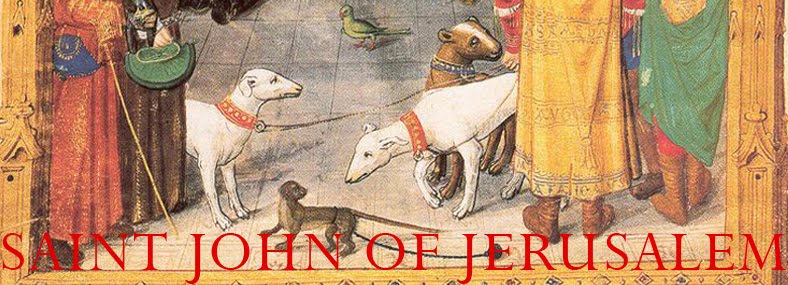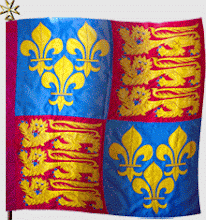SERMON ON SAINT JOHN'S DAY
At the very heart of the Christian faith is an astounding paradox, that the eternal word of God chooses to empty Himself of his glory and takes human flesh in order to live for us, die for us and rise for us, so that we might share His life with the Father in Heaven.
It may not have escaped many of you that the Order of Malta also has many paradoxes.
It is Sovereign, without any real territory, and that Sovereign status exists only so that it may carry out its work of service.
It is Military, without having gone to war for many centuries, yet, it is called on to do battle to protect and safeguard the Catholic faith.
It is a Religious Order yet those who take vows continue to live in the world, bearing witness to their determination to observe the Beatitudes in a special way.
Its head is a Prince and Grand Master, with the rank of a Cardinal, but he is called Fra' Matthew because he is our brother as well as our superior.
How do we resolve these many paradoxes? The answer is this: that perhaps they are insoluble and that Almighty God calls us to live our lives as members of the Order of Malta accepting these conundrums and learning to grow through them by living with them.
Nevertheless, there is a solution on the supernatural level and that is to put into practice the two great virtues that marked the life of our heavenly patron: humility and charity, “I must decrease; He must increase.”
Humility is a very elusive virtue and has nothing to do with being abject. It means accepting one’s own frailties and limitations and those of others without despair or anger and asking for the grace to grow through this knowledge. That is what wisdom teaches us.
Real charity is sometimes uncomfortable. St John the Baptist, as the last of the prophets, exercised the role of being the conscience of God’s people and he was martyred for his efforts. Here is another paradox: he is a martyr, before the Christian church was founded but, nevertheless, he was truly a martyr.
Living in humility and charity, which is essential for all members of the Order, does not just depend upon ourselves but requires a daily rededication to the ideals of the Order which it has tried to maintain for nearly a thousand years.
Soon the new members entering the Order will be reminded that to be a part of the Order of Malta is an honour and indeed it is. However, honour in the Christian sense demands responsibility and gift of self to God and to others. It also includes a sense of obedience, for what does it mean to be a military order if no one obeys?
At this Mass today, we should rededicate ourselves to the high ideals of the Order of St John. We should also remind ourselves that we belong to a worldwide family and try to live that dimension with greater fidelity and determination. We cannot serve our Lords the Poor and the Sick unless we see in them a reflection of the presence of Christ, who died for each and every one of us. We must also try harder to see their presence in one another, otherwise our lives as members of the Order cannot be fruitful: “Love one another as I have loved you.” said Our Blessed Lord.
The Feast of St John the Baptist should be a source of joy, strength and hope. We ask for his intercession and that of Our Lady of Philermo to help us in this high and noble endeavour.












